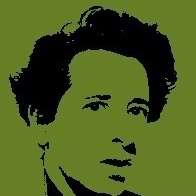Crítica del humanismo, labor y cuerpo en Hannah Arendt
Contenido principal del artículo
Resumen
La posición del pensamiento arendtiano en relación con el legado del humanismo es una cuestión sin lugar a dudas problemática. A partir de la reconstrucción de sus críticas a la noción de humanidad y de naturaleza humana, nos adentramos en su diagnóstico respecto del fin del humanismo. Revisaremos los supuestos de esta tradición que parecen seguir operando en su abordaje en relación con la labor y el cuerpo, a la luz de la distinción entre cuerpo (Körper) y cuerpo vivido (Leib) presente en la edición alemana de su libro Vita activa. El pensamiento arendtiano se muestra así difícilmente encansillable en el marco de una reformulación del humanismo y puede arrojarnos indicios más allá del mismo para una reconsideración radical del cuerpo y de la política.
Descargas
Detalles del artículo

Esta obra está bajo una licencia internacional Creative Commons Atribución-NoComercial-SinDerivadas 4.0.
Los autores mantienen la Propiedad de los Derechos de Autor y Derechos de Reproducción.
Los autores/as pueden realizar otros acuerdos contractuales independientes y adicionales para la distribución no exclusiva de la versión del artículo publicado en esta revista (p. ej., incluirlo en un repositorio institucional o publicarlo en un libro) siempre que indiquen claramente que el trabajo se publicó por primera vez en esta revista.
Se permite y recomienda a los autores/as a publicar su trabajo en Internet (por ejemplo en páginas institucionales o personales) posterior al proceso de revisión y publicación, ya que puede conducir a intercambios productivos y a una mayor y más rápida difusión del trabajo publicado.
Citas
Trabajo realizado en el marco del proyecto “Critica del sujeto, lenguaje y narración en algunas corrientes del pensamiento contemporáneo” (UNLP, H873).
Arendt, H. The Origins of Totalitarianism. New York: Harvest Book, 1979 (Los orígenes del totalitarismo. Tr. G. Solanas. Madrid: Taurus, 1999)
Arendt, H. The Human Condition. Chicago: Chicago University Press, 1998 (La condición humana. Tr. R. Gil Novales. Barcelona, Paidós, 2001).
Arendt, H. La vida del espíritu. Trad. C. Corral y F. Birulés. Buenos Aires, Paidós, 2002
Arendt, H. Ensayos de comprensión 1930-1954. Tr. A. Serrano de Haro. Madrid: Caparrós, 2005.
Arendt, H. Diario filosófico 1950-1973. Tr. R. Gabás. Barcelona: Herder, 2006.
Arendt, H. Vita activa oder Vom tätigen Leben. Münich: Piper, 2007.
Arendt, H. Escritos Judíos. Ed. a cargo de J. Kohn y R. Feldman. Tr. E. Cañas, M. Cancel, R. S. Carbó, V. Gómez Ibáñez. Barcelona: Paidós, 2009.
Arendt, H.; Scholem, G. Der Briefwechsel. Hannah Arendt - Gershom Scholem. Hg. M. L. Knott. Berlin: Suhrkamp, 2010.
Benhabib, S. The Reluctant Modernism of Hannah Arendt. Maryland: Rowman & Littlefield, 2003.
Benjamin, W. “Die Wiederkehr des Flaneurs”. En Gesammelte Schriften. Band III. Hg. R. Tiedemann y H. Schweppenhäuser. Frankfurt am Main: Suhrkamp, 1991.
Benjamin, W. “El origen del Trauerspiel alemán” Obras I. Vol. 1. Ed. a cargo de R. Tiedemann y H. Schweppenhäuser. Tr. A. Brotons Muñoz. Madrid: Abada, 2006.
Benjamin, W. “Sobre algunos motivos en Baudelaire”. En Obras I. Vol. 2. Ed. a cargo de R. Tiedemann y H. Schweppenhäuser. Tr. A. Brotons Muñoz. Madrid: Abada, 2008.
Benjamin, W. “Pobreza y experiencia”. En Obras II. Vol. 1 Ed. a cargo de R. Tiedemann y H. Schweppenhäuser. Tr. A. Brotons Muñoz. Madrid: Abada, 2007.
Benjamin, W. “Antropología”. En Obras VI. Ed. a cargo de R. Tiedemann y H. Schweppenhäuser. Tr. A. Brotons Muñoz. Madrid: Abada, 2017.
Canovan, M. Hannah Arendt. A Reinterpretation of Her Political Thought. Cambridge: Cambridge University Press, 2002.
Di Pego, A. “El camino hacia el ‘final del humanismo’. Crítica de la Ilustración y del Romanticismo en Hannah Arendt”. En Cadernos Arendt 1 (1), 2020, pp. 11-29.
Heidegger, M. Kant y el problema de la metafísica. Tr. G. Ibscher Roth. México D. F.: FCE, 1954.
Heidegger, M. Ser y Tiempo. Tr. E. Rivera. Santiago de Chile: Universitaria, 2005.
Heidegger, M. Carta sobre el Humanismo. Tr. H. Cortés y A. Leyte. Madrid: Alianza, 2000.
Hinchman, L. P.; Hinchman, S. K. “In Heidegger’s Shadow: Hannah Arendt’s Phenomenological Humanism”. En The Review of Politics 46 (2), 1984, pp. 183-211.
Hunziker, P. “Europa año cero. Hannah Arendt, Karl Jaspers y la filosofía en el mundo pos-totalitario”. En Ideas. Revista de Filosofía Moderna y Contemporánea 1 (2), 2015, pp. 70-93.
Husserl, E. Ideas relativas a una fenomenología pura y una filosofía fenomenológica. Libro Segundo: Investigaciones fenomenológicas sobre la constitución. Tr. A. Zirión. México D.F.: FCE, 2005.
Quintana, L. “Vida y política en el pensamiento de Hannah Arendt”. En Revista de Ciencia Política 29 (1), 2009, pp. 185–200.
McCarthy, M. H. The Political Humanism of Hannah Arendt. Washington D.C.: Lexington Books, 2012.
Mewes, H. Hannah Arendt’s Political Humanism. Frankfurt am Main: Lang, 2009.
Ripamonti, P. “Ética, política e historia: dimensiones del humanismo en las reflexiones filosóficas de Hannah Arendt”. En Estudios de Filosofía Práctica e Historia de las Ideas 13 (1), 2011, pp. 59-66.
Serrano de Haro, A. “Husserl en el pensamiento de Hannah Arendt”. En Revista Investigaciones Fenomenológicas 6, 2008, pp. 299-308.
Smith, N. H. “Arendt’s Antihumanism of Labour”. En European Journal of Social Theory 22 (2), 2017, pp. 175-190.
Traverso, E. El totalitarismo. Historia de un debate. Tr. M. Gurian. Buenos Aires: Eudeba, 2001.
Young-Bruehl, E. Hannah Arendt. Tr. M. Llorís Valdés. Valencia: Alfons el Magnànim, 1993.

